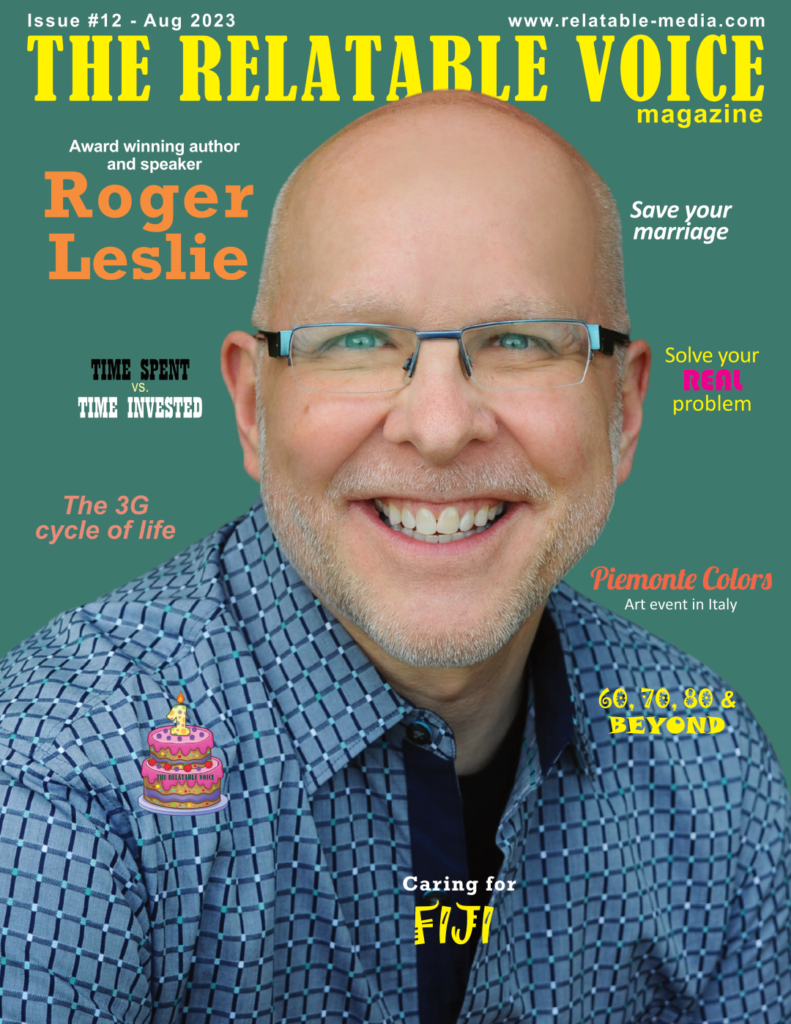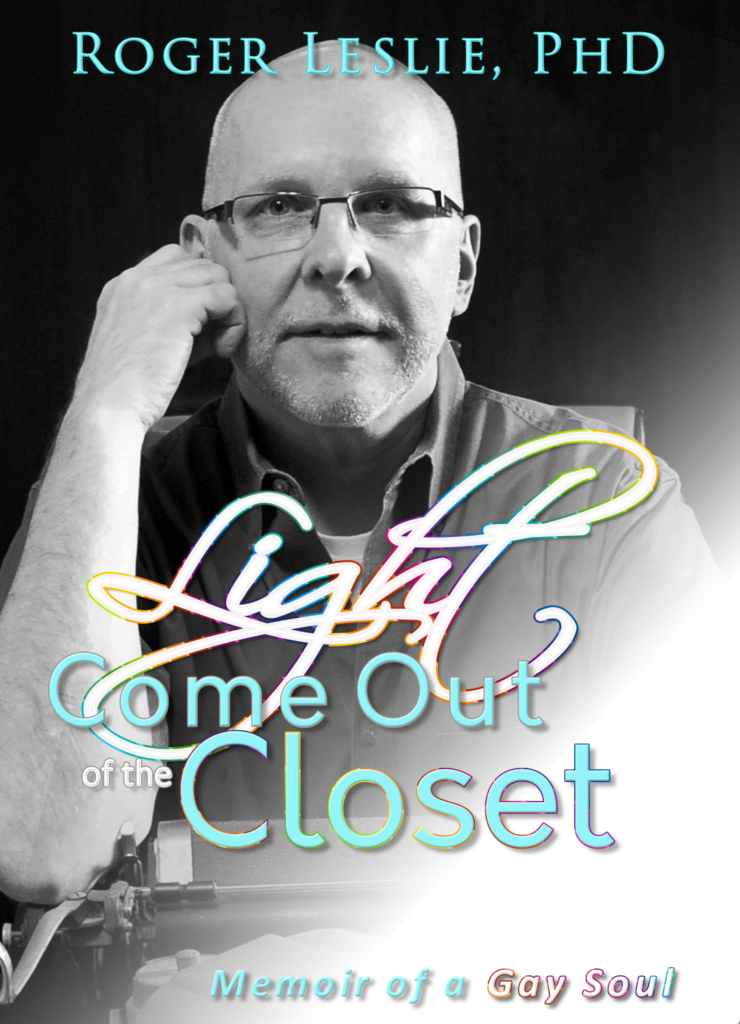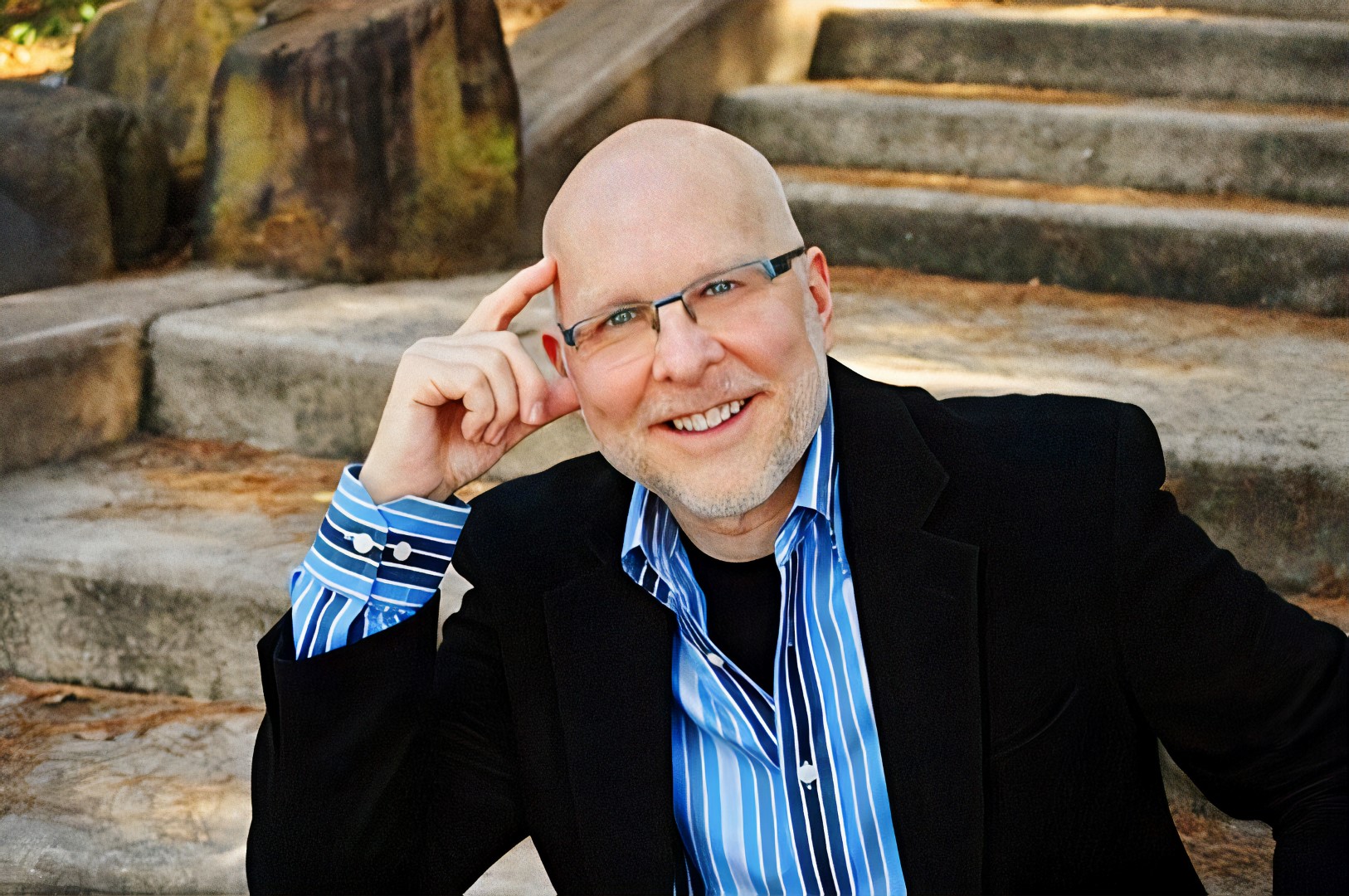Interview by Lucia Matuonto
Dr. Roger Leslie, an accomplished scholar in success and education, has published a wide range of books in various genres. His latest book, “Light Come Out of the Closet,” is out now. His work has received numerous national awards. He is a sought-after teacher, coach, and keynote speaker, inspiring individuals to pursue their dreams and success. Visit https://rogerleslie.com/ more.
Hello Roger, tell us a little bit about yourself.
While growing up in Michigan, I felt inspired to become an author. Although I didn’t know any writers or even if I had the talent necessary to succeed, the inspiration became my destiny. After my family moved to Texas when I was 14, I received a more diverse perspective of cultures and, thanks to dynamic English teachers like Ms. Adele McClendon, literature. My passion for becoming an author grew, although my “big break” as a published author didn’t occur for many years. As I strove to make my writing dream come true, I loved being a high school teacher and librarian. While writing my own books is my top priority, I also publish other authors’ books through my company, Paradise Publishing.
Your memoir aims to inspire others and promote equality in the human spirit. How do you hope your story will impact readers, both within and outside the LGBTQ+ community?
More than anything, I hope this book empowers people to have more faith in the uniqueness of their own spiritual journey. Whether readers have a religion that feels like a good fit or they explore their spirituality apart from any connection to organized religion, I want this book to invite people to explore what being a good human being means to them. I hope it invites reading groups and book clubs to discuss how diverse and mutually supportive divergent belief systems can be. From my experience, I see many religions as trying to suggest theirs is THE WAY to spiritual fulfilment. I believe we each have OUR OWN WAY to enlightenment. Our spiritual journey doesn’t have to look like anyone else’s Yet everyone’s can shine a light for anyone, even if their traditions and credos are vastly different from our own.
What has been the most unexpected or surprising reaction you’ve received from a reader or reviewer regarding your writing?
Personally, one of the most surprising responses to my writing is indifference from people I honoured in some of the books I wrote. To me, books have always played so important a role in my self-image and my idea of success that the thought of paying homage to someone by dedicating a book to them or highlighting them in the work felt like I was sharing my very soul with them. To my surprise, some of those recipients didn’t respond to the gesture at all. Some didn’t even read the book.
I don’t begrudge them their perspective. But the first time it happened, I really had to dig deep into my own mind to figure out why what I did with such honourable intentions could be left unacknowledged and seemingly unappreciated.
But then I remember my analogy of life as a prism, and everyone is looking at the same idea from a different facet. It also reminded me that we are all mirrors of each other. It led me to explore how people may have made magnanimous gestures for me that I didn’t respond as they expected because my context for the gesture wasn’t the same.
I love life. It always invites me to learn, learn, learn.
How do you choose the titles for your books, and what significance do they hold for your stories?
I always start with a generic title just to give the work a name. For example, for the first several drafts, I named my Christmas novel, Christmas Eve. I knew I couldn’t leave the book with so vague a title. It needed something that resonated and implied something about the tone, theme, or spirit of the novel. That’s the significance, and the power, of titles.
The word “stranger” caught my eye during one of the revisions more than once. That week while driving, I toyed with that term. In the background, my brain was barely registering that from my playlist, Dolly Parton was singing her version of “Stairway to Heaven.” When she sang the line, “’Cause you know sometimes words have two meanings,” my brain jolted. That was it! Something about using two different meanings held the key to the theme and the title. After working with a few options, and revising the novel to highlight that inspiration, I came up with the title No Stranger Christmas.
Could you discuss the significance of love and its transformative power as portrayed in your memoir? How has love played a role in your personal growth and self-acceptance?
Loving yourself makes easier and more genuine the love you can give others. I didn’t really know how to love myself as a boy because I thought being gay meant I was blighted and unlovable. Even when people would compliment me, my mind automatically rejected any affirmative hope by thinking, If you knew who I really was, you wouldn’t love me. As a boy, I didn’t realize I could choose my own thoughts. I also generalized reactions. For example, as I point out in Light Come Out of the Closet, if my mother was repulsed by something, as she was by seeing a lesbian wedding on late-night TV, I thought the whole world must find it repulsive. Only after I began learning how to become my own person with unique perspectives, especially developing a backbone I thought I lacked, did I start seeing hopeful signs of personal growth and self-acceptance. Of course, as my perspective changed, I began connecting with other people who shared my perspective. That aspect of personal growth felt monumental, as it was the beginning of my breaking free of the misguided confines of believing I was cursed from birth for being what some people didn’t like.

Do you have a favorite character from your own books, and if so, why is that character special to you?
I love many of my characters, but when I teach writing courses, one character I often use as an illustration of the magic of the creative process is Russell from the novel, Drowning in Secret. I wrote the book more than twenty years ago, so I was still on a high learning curve about writing fiction.
I created Russell as a minor character with one purpose. Early in the novel, he was a foil to Mark, his friend, and one of four main characters in the book. The narration follows each of four characters in the same family: the mom, the dad, the sister, and Mark. They’re all drowning in their own secrets, not realizing how parallel their experiences are with the rest of their family. I wrote Russell’s scene and thought, Okay, he’s gone. I don’t need him anymore.
As I wrote a later chapter in that first draft, Russell came back. I thought that was strange, but he worked well in the scene, so I left him in. A few chapters after that, he came back.
By this time Russell seemed like a defiant child who would not do what I wanted him to: get out of my novel. When he came back again, I wrote one of the pivotal scenes: I actually drowned him. That chapter ends with lifeless Russell lying at the side of the pool. I left my writing desk that evening dusting off my hands thinking, Good, he’s gone.
I couldn’t believe what happened when I started writing the next chapter. Another character ran out to the pool and revived him! That’s when I stopped fighting Russell and began trusting that maybe my characters knew more about what the novel needed than I did.
Russell isn’t in much more of the novel, but he shows up at the end. Turns out, he is the one who articulates the theme of the entire novel. Once I read what he said, I thought, Of course! My four main characters are so steeped in their own troubles and delusions, they would need someone outside their family to see and point out the issue that’s keeping them all adrift. I also realized that this insight had more power coming from a character as young as Russell. His innocence and intelligence make the expression of that theme palatable.

What advice would you give to aspiring authors who are just starting on their writing journey?
I offer many insights in my book From Inspiration to Publication: Master Book Writing One Piece at a Time. Here are two essentials for a first draft:
- Don’t get it right, get it written.
When you start a first draft, dive in and follow where it takes you. If you want to start with an outline, then construct a cursory one and follow it flexibly. Often, what you thought you wanted to say is not really what will be most helpful to readers. Trust your intuition. Before I begin each writing session, I meditate to quiet my conscious mind. The great ideas are all in your subconscious, but you have to be brave enough and adventurous enough to let them emerge naturally. Trying to write that first draft perfectly suffocates creativity. As you write, trust your creative process—even if you don’t yet know what that process is or how it will develop.
- Bare your soul.
The most exciting writing—and usually the passages that connect with readers most—occurs when you are completely real and share what you’re afraid to face. When you bare your soul in your first draft, you will discover thoughts and feelings that, on a conscious level, you may not even know were there. That makes the most intense, palpable reading.
Do you have a favorite book or author who has had a significant influence on your writing?
When I was a student and then a literature teacher, certain classics inspired me so much I would reread them regularly for pleasure, or I might pick one up and read a passage to inspire me to strive for excellence in my own writing. I still marvel at the excellence of F. Scott Fitzgerald’s The Great Gatsby and Harper Lee’s To Kill a Mockingbird. But those novels are so universally adored, they don’t seem to offer a very original answer.
Themes of isolation and inner growth fascinate me. For that reason, I love Carson McCullers’s The Heart is a Lonely Hunter and Sherwood Anderson’s Winesburg, Ohio. Beautiful writing also touches me. Passages from The House on Mango Street by Sandra Cisneros, The Joy Luck Club by Amy Tan, and Go Tell It on the Mountain by James Baldwin stay with me and draw me back to those books again and again.



